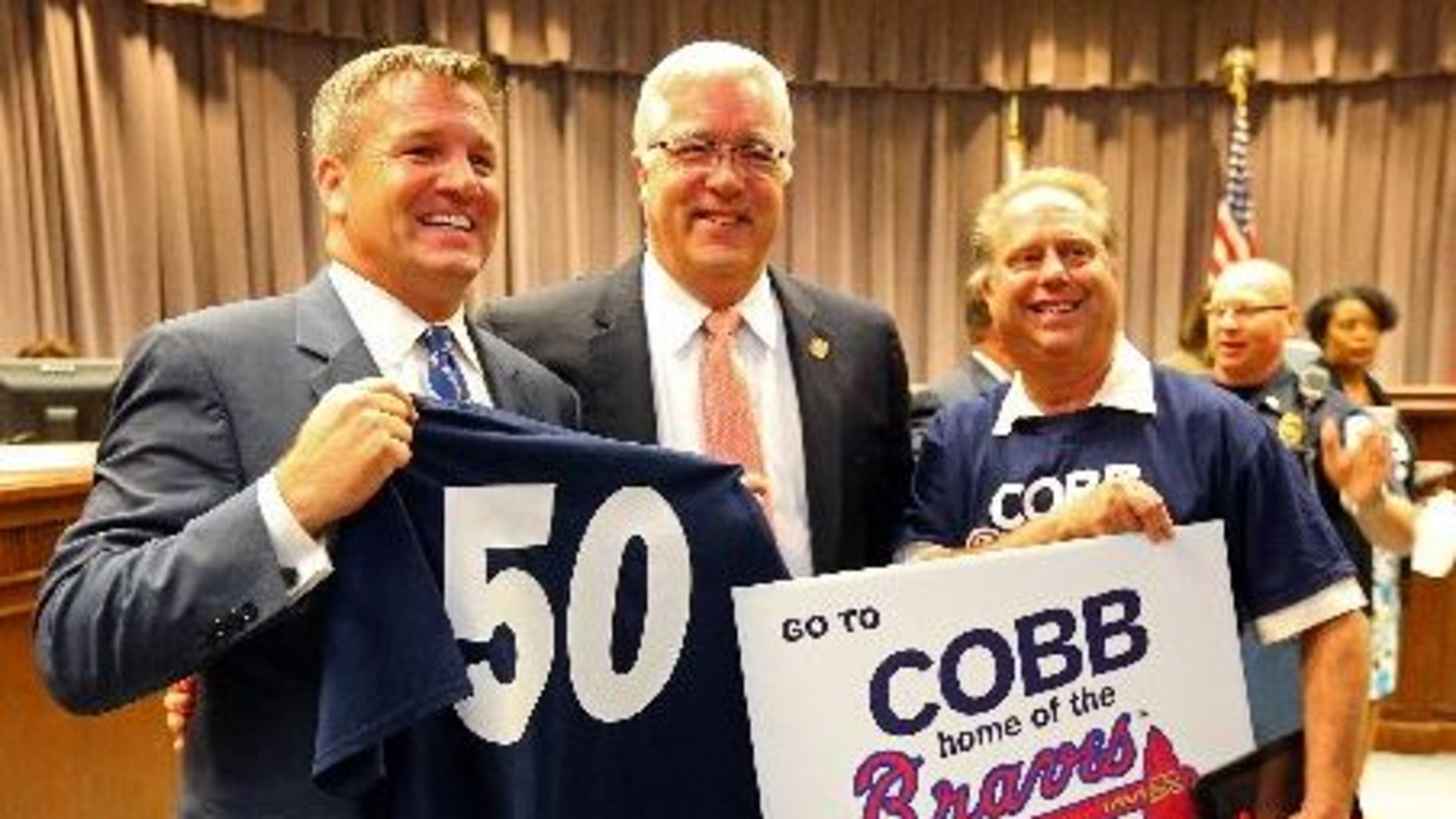One big thing Cleveland got right and Atlanta did not

Tim Lee never should have been presented with the deal that led to his defeat.
Lee, soon to be the ex-chairman of the Cobb Commission after losing his re-election bid Tuesday , was undone not because he brought the Atlanta Braves to his county, effective next April, but because of the way he did it. When 400 million taxpayer dollars are at stake, it pays not to sneak around , block opponents from commenting at public meetings , and generally act indignant at the idea voters might disagree with the wonders you've wrought with their money.
But on my recent trip to Cleveland — yes, that Cleveland — I was reminded again how badly Atlanta missed a window of opportunity that was only open for, oh, almost five decades.
Quicken Loans Arena, main site of the recent Republican National Convention and home of the NBA’s Cleveland Cavaliers, sits no more than 100 yards from Progressive Field, home of baseball’s Cleveland Indians. Within blocks of them are bars, restaurants, shops, hotels — everything the Braves long wanted near the home in downtown Atlanta they’re departing and are busily creating in the new Cobb home they’re building.
Between the two of them, Quicken and Progressive are host to more than 120 home games spanning almost the entire calendar year, plus concerts, circuses, other sports and the occasional political convention. That’s a lot of activity in a highly concentrated area. (An aside: Cleveland also nearby has a bus rapid transit line similar to the one Lee also proposed for Cobb.)
Atlanta could have had that. But when the Hawks moved to Atlanta several years after the Braves and Falcons began their runs here, they moved into an arena on the other side of not one but two interstates, a couple of miles away from Atlanta-Fulton County Stadium. Neither area developed into the kind of destination neighborhood that sports teams have spurred in other cities.
Adding the Georgia Dome didn’t do it. Staging the Olympics didn’t do it. Nor did opening Turner Field and later Philips Arena.
Now, in a way that seems typical of these parts, we’re going to try to do it twice at the same time, in areas even farther apart.
While the Braves finish their mini-city near Cumberland Mall, the Hawks’ new ownership is betting on an entertainment district to be built near a renovated Philips Arena and not far from the Falcons’ new stadium. These are both in addition to similar types of developments, minus the sports teams, scattered across the city and region.
I have to wonder if any of them will pack the same punch as what might have cropped up around a better thought-out sports district.
While I’d be happy if Congress were to ban public subsidies for sports stadiums that chiefly benefit private team owners, the unfortunate reality is relatively few are built without taxpayer dollars. But as with other public infrastructure, the debate always seems to be over whether to build or not.
The better question to ask every time regarding stadiums, roads, transit, parks, etc. is whether it’s being built in the right way, in the right place, for the right price, to have the catalyzing effect we seek. It’s too simplistic to say that, if you build it, they (other businesses, jobs, shoppers, diners, tourists and so on) will come.
